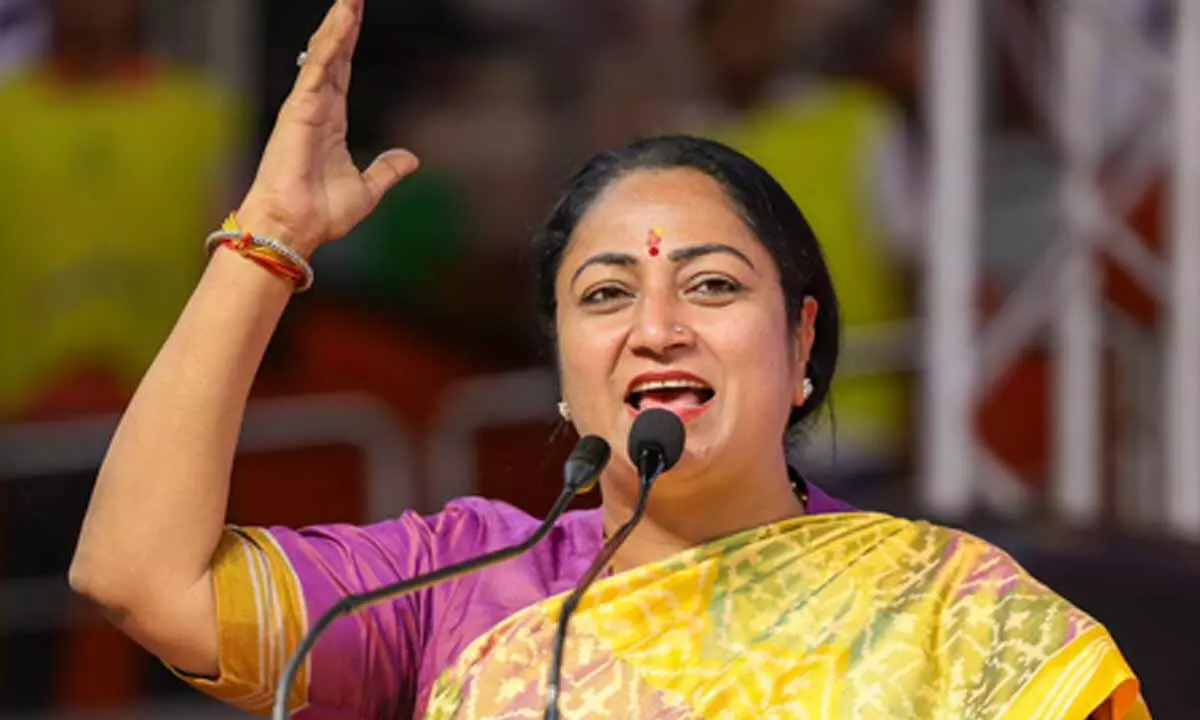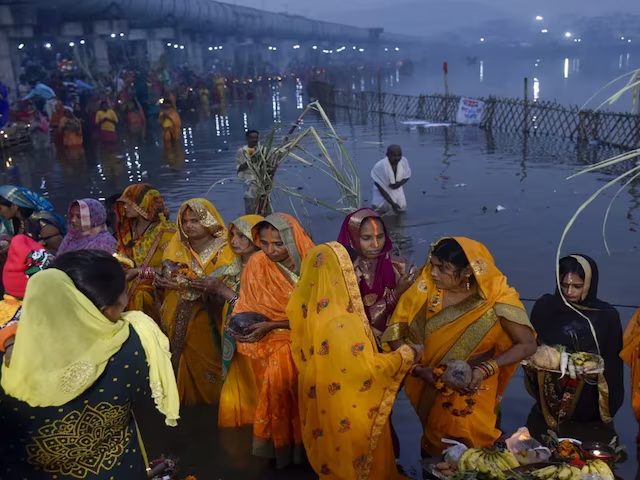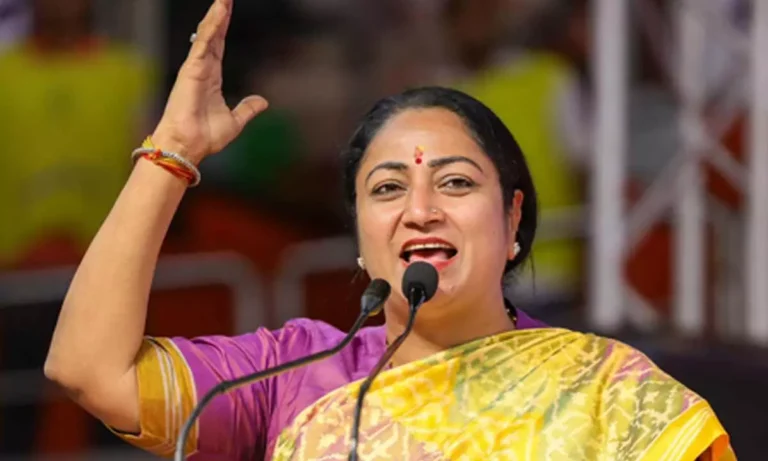
Rekha Gupta
As Bihar gears up for polls just days after Chhath Puja, Delhi Chief Minister Rekha Gupta’s government is pulling out all stops to organize a ‘grand and spotless’ celebration
The intertwining of festivals, identity and electoral politics in India is by now a familiar trope. Yet, in the case of the 2025 Bihar assembly elections, the timing and significance of Chhath Puja provide a uniquely potent opportunity — one that Delhi’s BJP-led administration under CM Rekha Gupta appears keen to exploit. At first glance, the formula is simple: host a grand, spotless, well-publicised Chhath in Delhi so that Bihar migrants.
The political context
The 2025 Bihar Legislative Assembly elections are scheduled in early November (polling from November 6 to 11. Chhath Puja, one of Bihar’s most beloved and sacred festivals, is scheduled for October 25 to 28 this year. This creates a narrow window: Chhath concludes days before polling begins, giving festival-going voters time to travel back home and cast their ballots.
In recent elections, there has often been some buffer or gap between festival and polling; this year, the alignment is tighter — and that opens up the festival itself to being used as a soft political tool.

Delhi’s population includes a large number of migrants from Bihar and the eastern Uttar Pradesh belt, who continue to maintain cultural and emotional ties with their home states. For many of them, celebrating Chhath in Delhi (on the banks of the Yamuna, in designated “ghats”) is a way to sustain those ties.
What Rekha Gupta’s administration is doing
To turn festival optics into political advantage, the Delhi government has launched multiple initiatives and high-visibility assurances:
- High-level oversight and committee
CM Rekha Gupta have constituted a high-level committee, chaired by Art, Culture and Tourism Minister Kapil Mishra, to monitor Chhath Puja preparations across Delhi. - Expanding Chhath sites
The Delhi administration has announced that Chhath will be celebrated at around 1,000 locations across the city — along both banks of the Yamuna, at pools or artificial ponds, and in other suitable water bodies. From Palla in the north to Okhla in the south, devotees will have multiple access points to perform rituals. - Environmental and water cleanliness guarantees
A big headache for past Chhath celebrations in Delhi has been froth, pollution, industrial effluent in the Yamuna, and degraded water quality. Gupta has publicly promised that this year “froth will not be seen” in the Yamuna during Chhath - Cultural programming & symbolic messaging
The Delhi government plans to host cultural performances, folk art events, and programs celebrating the identity of Purvanchal (eastern Uttar Pradesh / Bihar) in multiple locations. The idea is to turn Chhath from a purely ritual exercise into a public cultural spectacle — thereby generating media attention and reinforcing identity ties. - Public pledges and criticism of prior governments
Gupta has contrasted the new approach with what she calls the neglect of past governments (implicitly the AAP tenure) in supporting the festival. She has framed Chhath as not just a regional affair but as Delhi’s shared cultural heritage, a bond among people from Uttar Pradesh, Bihar, Jharkhand, and Delhi.
In effect, the administration is making Chhath a showcase of governance efficacy: “Look, we deliver clean water, safe ghats, facilities, event management — we care about you.”
The electoral logic and risks
- Emotional resonance: Chhath is deeply emotional and identity-laden. If Delhi’s Bihari community feels honored and prioritized, it may translate into loyalty or subtle reciprocity in the ballot box in Bihar.
- Word-of-mouth: Devotees returning home are likely to talk among family and community networks about their experience. A “grand Chhath in Delhi” narrative can spread via local social ties and social media.
- Symbolic proof of competence: If the festival proceeds smoothly, legitimacy accrues to the ruling BJP in Delhi — reinforcing its broader brand as a party that delivers, not just promises.
- Countering criticism: In the past, festivals like Chhath have been turned into political flashpoints, with opposition parties accusing governments of neglect or tokenism. By proactively investing in higher quality, the government deflects that criticism.
Rekha Gupta’s administration is sending several signals:
- Cultural empathy and inclusion: By aligning government machinery to serve a culturally significant festival, the administration seeks to signal that it respects and values Bihar/UP-origin communities in Delhi, rather than ignoring them as outsiders.
- Image projection: A flawlessly executed Chhath becomes a piece of visual propaganda — images of devotees at clean ghats, safe infrastructure, minimal inconvenience — reinforcing the narrative of “governance that works.”
- Linkage between capital and origin: By managing the festival in Delhi well, the administration bridges the space between migrants’ lived reality in the capital and their electoral agency back home — capturing the “returning voter” before they even board the train.
- Soft footprint in Bihar politics: Even though Delhi is not Bihar, this is a way for BJP to deploy resources beyond its home turf. It’s an indirect way to influence Bihar politics via cultural diplomacy among migrant communities.
If the plan succeeds, it might shift marginal votes or sway neutral voters. Even if it doesn’t decisively change the election outcome, it could move perception and narrative, strengthen BJP’s image among Bihari diaspora, and raise the bar for opposition to counter on cultural grounds.
Conclusion
The “equation” of Bihar Election + Chhath Puja is not new in Indian politics — religion, ritual, identity, and elections have often intersected. But the stakes this year are sharper, because of the tight timing, the concentrated window, and the active role of a BJP government in Delhi under Rekha Gupta.
The gamble is clear: if the administration can deliver a Chhath festival in Delhi that is perceived by devotees as respectful, smooth, clean, and convenient, their emotional goodwill may translate into electoral dividends back in Bihar. But the risk is that any misstep could amplify criticism of tokenism or hype. In the end, voters’ decisions will also depend on very material issues at home. This is a calculated overlay — and whether it pays off will depend on how well the festival is actually delivered, and whether the personal, cultural experience trumps voters’ assessments of governance, caste alliances, and local issues.

















